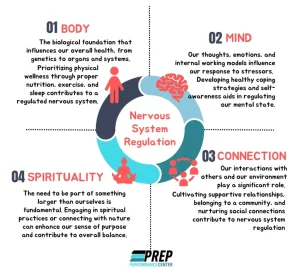
Personalized medicine utilizes modern advances in science, genetics, and molecular biology to tailor healthcare specifically to each patient. This improves treatment outcomes while decreasing side effects.
AI can assist healthcare professionals in identifying at-risk patients and devising effective plans to monitor their health, but their effectiveness relies on large, comprehensive, unbiased datasets.
Artificial Intelligence
Integration of advanced AI technologies with advances in molecular medicine is creating a revolution in personalized health care, ushering in an era of revolutionary medical devices that treat early-stage illnesses as well as prevent future ones.
Artificial Intelligence can assist physicians in making accurate diagnoses and suggesting effective treatments for each individual. AI also assists physicians in managing complex cases requiring teams of specialists, saving both time and resources by automating repetitive tasks such as chatbots/virtual health assistants which answer queries regarding appointments, bill payments etc.
One such project is the BERG initiative, which employs Artificial Intelligence to connect chemical links in Parkinson’s disease more easily, making it simpler to create new medicines that will extend patient lifespan and promote overall wellness. Furthermore, AI allows medical researchers to study large data sets more rapidly.
Big Data
Personalised medicine has quickly become a prominent trend in healthcare. While its definition can differ depending on who’s asked, personalized medicine usually refers to an approach in which doctors tailor treatments and preventive measures specifically tailored to an individual’s genetic make-up.
Healthcare industries generate enormous amounts of data in various formats and forms, including electronic medical records, images and genomic information. This variety of information can help clinicians make more informed clinical decisions as well as increase organizational efficiency and boost performance.
Patients can make valuable contributions by using digital products like Fitbit and Apple Watch to monitor their health-related activities. This data allows physicians to identify potential risk factors and recommend preventive measures, such as lifestyle modifications or earlier screening tests, that can lead to healthier and longer lives for all involved. Furthermore, more effective treatment options will become available so more people will be eligible to access lifesaving treatments like targeted cancer drugs.
Predictive Analytics
Today, thousands of hospitals, private practices, pharmaceutical labs and other healthcare facilities produce petabytes of healthcare data which is then analyzed into forward-looking insights for improved patient care.
Predictive analytics has become an indispensable tool in disease detection and prevention. By analyzing past trends, AI/ML can spot potential issues before they escalate to become full-blown crises.
An algorithm may recognize when a patient is suffering an anaphylactic reaction and alert their physician so life-saving epinephrine can be administered quickly to save lives and avoid adverse events and expensive hospital readmissions.
Predictive analytics can reshape healthcare delivery models by helping to ease logistical hurdles like long wait times for appointments or getting patients on to the right doctor’s schedule. Such operational improvements enable healthcare professionals to focus more on high-value or high-risk strategic tasks; similar to how businesses like Netflix utilize predictive analytics for content recommendation purposes.
Machine Learning
AI algorithms can be employed to examine past and present patient data such as medical histories, lifestyle factors and genetic information in order to identify those at risk for developing certain conditions or diseases and develop personalized treatment plans which are more effective than their conventional counterparts.
Additionally, machine learning (ML) can assist in optimizing healthcare admin and operational workflow by automating tasks like scheduling appointments, managing patient records, processing insurance claims and medical bills and answering patients’ queries/reminding them of upcoming medical appointments/medication doses etc. AI chatbots/virtual health assistants may also offer additional benefits such as answering any queries that arise and remind them about medical appointments/medication doses in an effective manner.
ML-based systems can also assist medical practitioners in accurately analyzing and interpreting medical images such as X-rays with greater accuracy than human experts, thus decreasing misdiagnosis risks and freeing doctors to focus more on providing patients with treatment. Furthermore, medical practitioners can use AI mapping diseases and hastening the discovery of cutting-edge breakthrough drugs and vaccines for rare illnesses.







